-
 Trump meets Qatar leaders on way to Asia
Trump meets Qatar leaders on way to Asia
-
Melissa strengthens into hurricane, cutting slow path to Jamaica

-
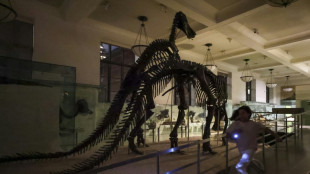 In New York, a night at the museum -- five years in the making
In New York, a night at the museum -- five years in the making
-
Trump makes Qatar stop en route to Asia summits, Xi talks
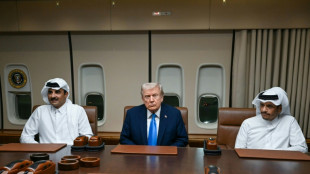
-
 England women lose to Brazil on Euros homecoming
England women lose to Brazil on Euros homecoming
-
Ouattara set for fourth term after Ivory Coast presidential vote

-
 Norris tops Mexico final practice ahead of Hamilton
Norris tops Mexico final practice ahead of Hamilton
-
Tens of thousands protest on anniversay of deadly Spain flood

-
 Napoli go top with slump-ending win over Inter but lose De Bruyne
Napoli go top with slump-ending win over Inter but lose De Bruyne
-
Man Utd beat Brighton, Sunderland stun Chelsea to go second in Premier League

-
 Cunha scores first Man Utd goal in win over Brighton
Cunha scores first Man Utd goal in win over Brighton
-
Trump makes MidEast pit stop en route to Asia summits, Xi talks

-
 Thousands protest on 1st anniversay of Spain's deadly floods
Thousands protest on 1st anniversay of Spain's deadly floods
-
Fonseca to face Davidovich Fokina in Basel final
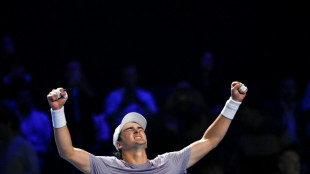
-
 Bayern beat 10-man 'Gladbach to match European record
Bayern beat 10-man 'Gladbach to match European record
-
PSG return to Ligue 1 winning ways

-
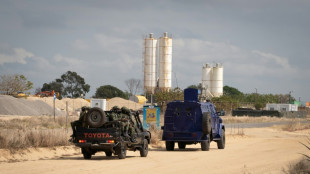 TotalEnergies approves restart of $20-bn Mozambique gas project
TotalEnergies approves restart of $20-bn Mozambique gas project
-
Wilders gets hero's welcome in Dutch heartland
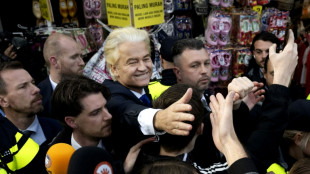
-
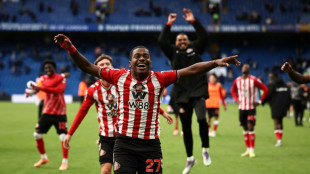 Sunderland stun Chelsea to go second, Newcastle beat Fulham
Sunderland stun Chelsea to go second, Newcastle beat Fulham
-
Afghanistan, Pakistan seek to firm up truce in Istanbul talks
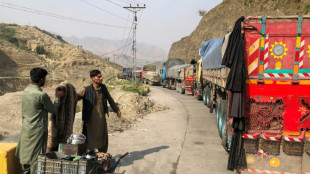
-
 Bayern move past 10-man Gladbach to stay five clear
Bayern move past 10-man Gladbach to stay five clear
-
The armed groups clashing with Hamas in Gaza
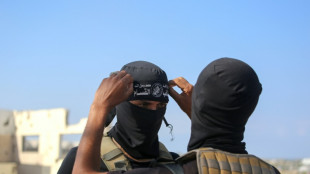
-
 Argentina votes in midterms critical for Milei's agenda
Argentina votes in midterms critical for Milei's agenda
-
Sinner sweeps into eighth final of season in Vienna

-
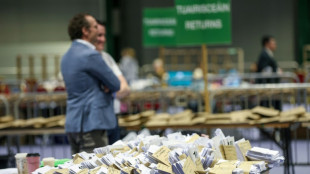 Ireland's Catherine Connolly set to be president after rival concedes election
Ireland's Catherine Connolly set to be president after rival concedes election
-
Ouattara set for fourth term as Ivory Coast holds presidential election
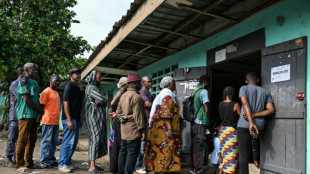
-
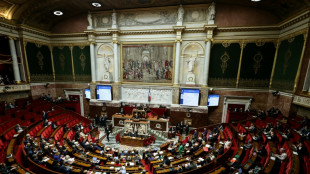 French government under pressure as lawmakers set to vote on wealth tax
French government under pressure as lawmakers set to vote on wealth tax
-
French fishing nets find new purpose on Ukraine's front lines
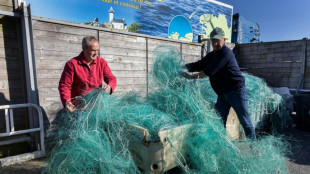
-
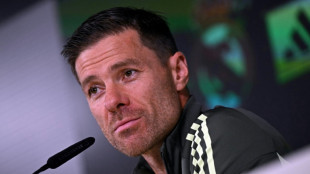 Real Madrid can show growth in Clasico after Atletico thrashing: Alonso
Real Madrid can show growth in Clasico after Atletico thrashing: Alonso
-
Austria's Scheib wins Soelden giant slalom, Shiffrin fourth
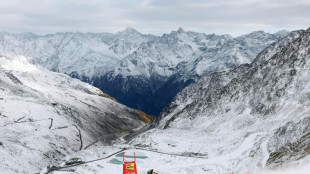
-
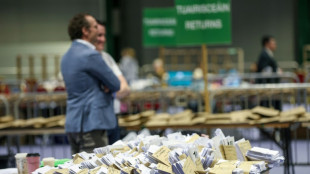 Ireland set to elect left-winger president despite discontent at ballot choices
Ireland set to elect left-winger president despite discontent at ballot choices
-
Criticism will motivate Yamal in Clasico, says Barca assistant
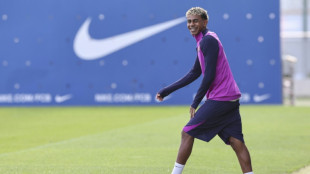
-
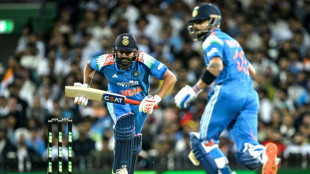 Rohit and Kohli turn back clock as India crush Australia in 3rd ODI
Rohit and Kohli turn back clock as India crush Australia in 3rd ODI
-
Eddie Jones eyes 'iconic' Wembley shock after narrow Wallabies loss
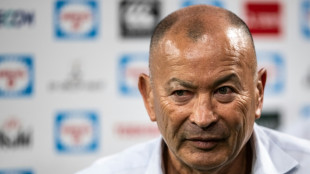
-
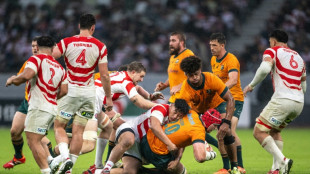 Wallabies count injury cost after nervy 19-15 win over Japan
Wallabies count injury cost after nervy 19-15 win over Japan
-
Black-clad Thai mourners weep for former Queen Sirikit
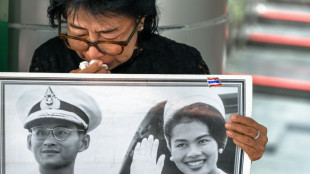
-
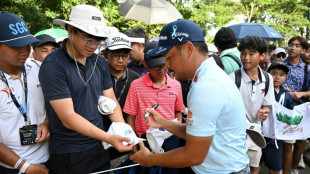 Hometown hero Tabuena shoots 65 to eye International Series glory
Hometown hero Tabuena shoots 65 to eye International Series glory
-
Hong Kong collects black boxes after deadly plane crash
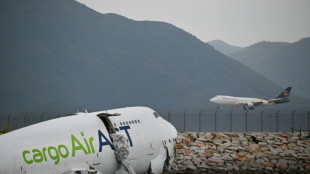
-
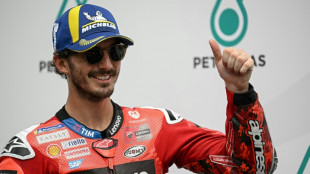 Alex Marquez seals family 1-2 as Bagnaia wins Malaysia MotoGP sprint
Alex Marquez seals family 1-2 as Bagnaia wins Malaysia MotoGP sprint
-
US wants to deport Salvadoran man in immigration row to Liberia
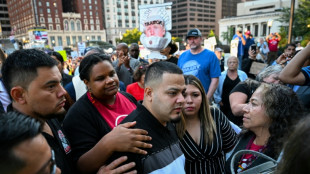
-
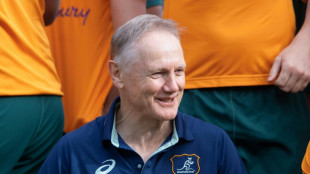 Nervy Australia hold off Eddie Jones's Japan 19-15 in Tokyo
Nervy Australia hold off Eddie Jones's Japan 19-15 in Tokyo
-
Bagnaia wins Malaysia MotoGP sprint as Alex Marquez seals brotherly 1-2
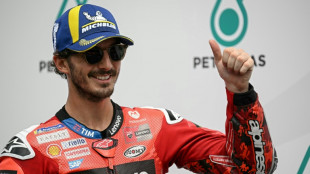
-
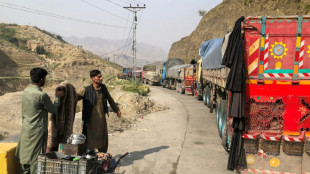 Afghanistan, Pakistan to firm up truce at Istanbul talks
Afghanistan, Pakistan to firm up truce at Istanbul talks
-
Rybakina out of Tokyo with injury as Bencic sets up Noskova final

-
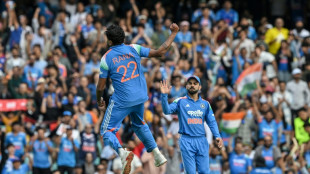 Rana takes four as India bowl out Australia for 236 in 3rd ODI
Rana takes four as India bowl out Australia for 236 in 3rd ODI
-
UN has 'stopped working': Brazil's Lula
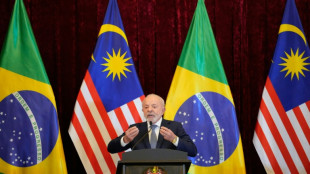
-
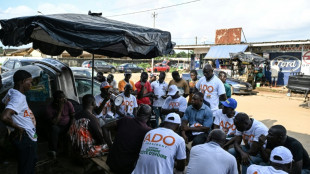 Ouattara tipped for fourth term as Ivory Coast goes to polls
Ouattara tipped for fourth term as Ivory Coast goes to polls
-
Major champions help Philippines chase golf tourist billions
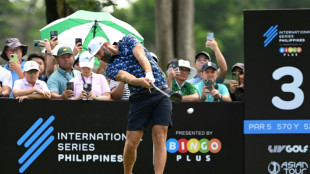
-
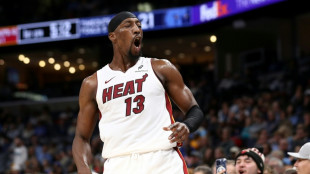 Heat and Blazers win first NBA games since Rozier and Billups arrests
Heat and Blazers win first NBA games since Rozier and Billups arrests
-
Trump heads to Asia for Xi talks, eyes Kim meeting
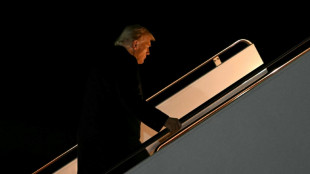
Reverse Apartheid" in SA?
Recent claims have surfaced suggesting that white South Africans face systemic discrimination akin to apartheid, a term historically associated with the institutionalised racial segregation of black South Africans by the white minority from 1948 to 1994. These allegations, often amplified on social media and by certain political figures, point to issues such as land reform policies, farm attacks, and affirmative action programmes as evidence of a supposed "reverse apartheid." This article examines the validity of these claims, exploring the socio-political context, economic realities, and lived experiences in contemporary South Africa.
The notion of apartheid against whites primarily stems from debates over land reform. In 2025, South Africa’s government, led by President Cyril Ramaphosa, implemented a law allowing expropriation of land without compensation under specific conditions. The policy aims to address historical inequalities, as white South Africans, who make up roughly 8% of the population, still own a disproportionate share of arable land—estimated at over 70%—decades after apartheid’s end. Critics argue this policy targets white farmers unfairly, with some claiming it constitutes racial persecution. However, no documented cases of such expropriations have occurred to date, and the policy requires judicial oversight to ensure fairness. The land reform debate is less about race and more about correcting colonial and apartheid-era dispossessions, though its implementation remains contentious.
Another focal point is the issue of farm attacks, which some allege are racially motivated against white farmers. South Africa’s rural crime rates are high, with farmers of all backgrounds facing risks due to the country’s economic inequality and unemployment, which hovers around 33%. Data from the South African Police Service indicates that farm attacks, while tragic, are not disproportionately racial. In 2024, approximately 50 farm murders were recorded, affecting both white and black farmers, with motives often tied to robbery rather than race. Nonetheless, the narrative of a "white genocide" persists, fuelled by inflammatory rhetoric from figures like Julius Malema of the Economic Freedom Fighters, whose past chants of "Kill the Boer" have been widely condemned. Courts have ruled such statements as hate speech, and Malema has since distanced himself from inciting violence.
Affirmative action policies, designed to uplift historically disadvantaged black, coloured, and Indian populations, are also cited as evidence of anti-white discrimination. Programmes like Black Economic Empowerment (BEE) prioritise non-white hiring and business ownership to address the economic legacy of apartheid, where whites dominated wealth and opportunity. Some white South Africans, particularly Afrikaans-speaking Afrikaners, feel marginalised, claiming these policies limit their job prospects. For instance, in 2018, white employees at the Sasol corporation protested against alleged exclusion from bonus schemes. Yet, economic data paints a different picture: white South Africans still enjoy higher average incomes and lower unemployment rates (around 7%) compared to black South Africans (over 40%). The Gini coefficient, a measure of inequality, remains among the world’s highest at 63.3%, reflecting persistent disparities that affirmative action seeks to address.
Social tensions also play a role. Many white South Africans report feeling culturally alienated in a nation where African languages and traditions dominate public life. Afrikaans, once a symbol of white authority, is less prominent in schools and government, prompting some to perceive this as erasure. Conversely, black South Africans argue that these shifts are necessary to reflect the country’s 80% black majority. Incidents of racism, such as black students reporting unfair treatment in schools, highlight that prejudice cuts both ways, complicating claims of one-sided oppression.
The "apartheid against whites" narrative has gained traction internationally, particularly in the United States, where former President Donald Trump in 2025 claimed white South Africans face "genocide." He offered asylum to white farmers, citing videos purportedly showing attacks. These claims were debunked, with South African authorities and independent analysts confirming no evidence of genocide. The videos, some dating back to the apartheid era, were misrepresented. Such international interventions often overlook South Africa’s complex reality, where poverty, not race, drives much of the crime and unrest. The country’s Truth and Reconciliation Commission, established post-1994, aimed to heal racial divides, but its recommendations for economic justice remain only partially implemented, leaving both black and white communities frustrated.
South Africa’s challenges—high crime, unemployment, and inequality—stem from apartheid’s long shadow, not a new racial regime. White South Africans, while facing real anxieties about their place in a transforming society, retain significant economic advantages. Claims of apartheid against whites exaggerate isolated incidents and mischaracterise policies aimed at historical redress. The country’s path forward lies in addressing poverty and fostering dialogue, not in perpetuating narratives of racial victimhood.

Countries across Europe are tightening security measures

Five elections in 2024 that will shape Europe!

Norway: Russians sceptical about Russia's terror against Ukraine

Nepal: Crowd demands reinstatement of the monarchy

Europe: Is Bulgaria "hostage" to a Schengen debate?

EU: Netherlands causes headaches in Brussels

Israel in the fight against the terror scum of Hamas

Italy: Storm Ciarán brings disastrous record rainfall

What remains of the EU leader's visit to Kiev?

Gaza: Hamas terrorists responsible for expulsion

Vice-Chancellor Habeck: Empty words without action?



